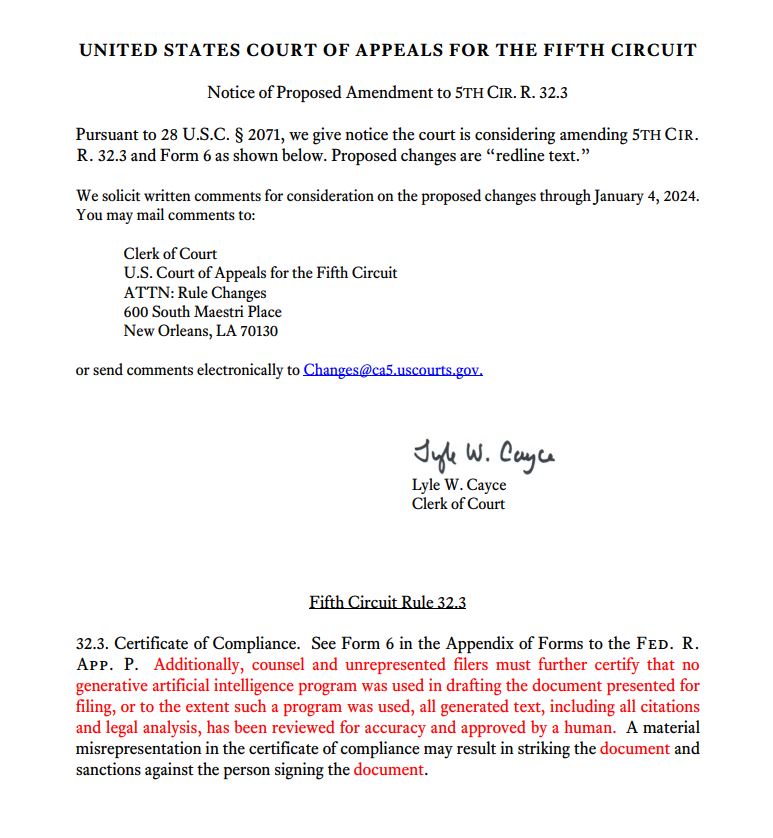
A federal appeals court in New Orleans is currently reviewing a proposal that would require lawyers to disclose whether they used artificial intelligence (AI) programs to draft their briefs. The proposed rule, issued by the 5th U.S. Circuit Court of Appeals, aims to regulate the use of generative AI tools, including OpenAI's ChatGPT, in court presentations.
Confirmation of AI Use and Human Review
The proposed regulation would apply to attorneys and litigants without legal representation appearing before the court. They would be required to confirm whether an AI program was used in producing a filing and if both citations and legal analysis were assessed for accuracy. Attorneys who provide false information about their adherence to the rule could have their submissions invalidated and face sanctions.
Public Feedback and Concerns
The 5th Circuit is currently seeking public feedback on the proposed rule until January 4. This initiative comes as judges nationwide grapple with the rapid proliferation of generative AI programs like ChatGPT and consider the need for safeguards when incorporating this technology in courtrooms.
In June, two attorneys from New York faced sanctions for submitting a legal document that included six fabricated case citations generated by ChatGPT. In response, the U.S. District Court for the Eastern District of Texas introduced a rule, effective December 1, requiring lawyers using AI programs to evaluate and authenticate any computer-generated content.

Importance of Human Judgment
The court's statements accompanying the rule modification emphasize the potential inaccuracies of AI-generated content and stress that AI technology should not replace the abstract thinking and problem-solving capabilities of lawyers.
As the legal field navigates the challenges associated with AI, this proposed rule aims to ensure transparency and accountability in court submissions and maintain the integrity of the legal process.
Did you miss our previous article...
https://trendinginthenews.com/crypto-currency/is-binances-4b-settlement-the-green-light-for-spot-bitcoin-etfs






